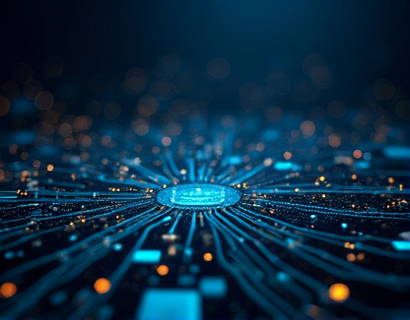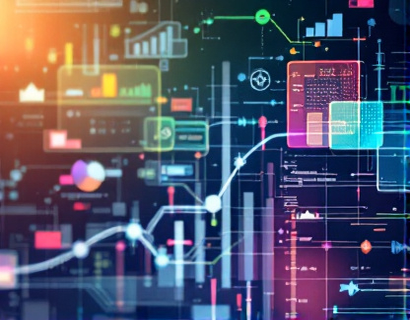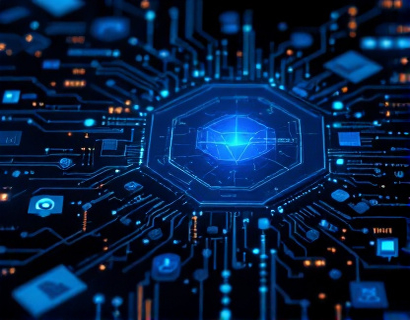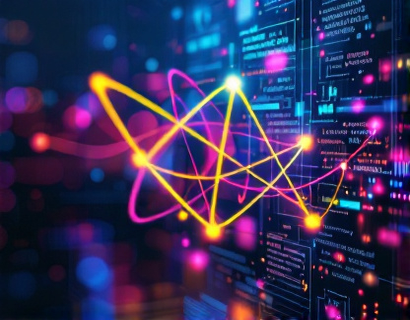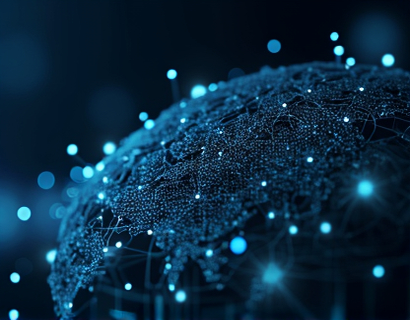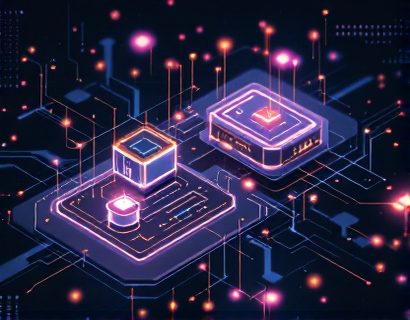Crypto AI Synergy: Transforming Digital Engagement with Advanced Tech Solutions
The intersection of artificial intelligence and cryptocurrency has given rise to a new era of digital engagement, where the synergy between these two cutting-edge technologies is revolutionizing the way we interact with online platforms and services. This article delves into the transformative impact of AI-powered solutions in the crypto landscape, highlighting how this fusion is creating superior experiences for tech enthusiasts and early adopters. By exploring the latest advancements and real-world applications, we aim to provide a comprehensive understanding of how AI and cryptocurrency are reshaping the digital world.
Understanding the Basics: AI and Cryptocurrency
To grasp the full potential of crypto AI synergy, it's essential to first understand the fundamental concepts of both AI and cryptocurrency. Artificial intelligence, a branch of computer science, involves the development of algorithms and systems that can perform tasks requiring human intelligence, such as learning, reasoning, and problem-solving. On the other hand, cryptocurrency is a digital or virtual currency that uses cryptography for security and operates on a decentralized network, most notably blockchain technology.
The integration of AI with cryptocurrency has opened up new possibilities for enhancing security, efficiency, and user experience. AI algorithms can analyze vast amounts of data from blockchain transactions, identifying patterns and anomalies that traditional methods might miss. This capability is crucial for improving fraud detection, risk management, and smart contract execution.
Enhancing Security through AI
One of the most significant benefits of AI in the crypto space is its ability to bolster security measures. Cryptocurrency exchanges and wallets are prime targets for cyberattacks, and the use of AI can significantly mitigate these risks. Machine learning models can detect unusual patterns in transaction data, flagging potential fraudulent activities in real-time. This proactive approach to security helps protect users' assets and maintains the integrity of the blockchain network.
Moreover, AI-driven security solutions can adapt to new threats as they emerge, ensuring that security protocols remain robust and up-to-date. For instance, AI can be used to develop more sophisticated multi-factor authentication methods, combining biometric data with traditional authentication techniques to create a more secure access process.
Optimizing Blockchain Performance with AI
Blockchain technology, while revolutionary, faces challenges related to scalability and transaction processing speed. AI can play a pivotal role in optimizing blockchain performance by predicting network congestion and dynamically adjusting parameters to enhance throughput. For example, AI algorithms can analyze historical data to forecast peak usage times and optimize block sizes and intervals accordingly.
Additionally, AI can improve the efficiency of consensus mechanisms, which are critical for validating transactions on the blockchain. By analyzing network conditions and transaction volumes, AI can suggest optimal consensus algorithms, reducing energy consumption and increasing transaction speeds. This not only makes blockchain more viable for widespread use but also aligns with the growing demand for sustainable technology solutions.
Personalized User Experiences through AI
The true power of AI in the crypto landscape lies in its ability to create personalized user experiences. By leveraging machine learning, platforms can analyze user behavior and preferences, tailoring recommendations and services to individual needs. This level of personalization enhances user engagement and satisfaction, fostering a more loyal and active community.
For instance, AI can curate customized portfolios based on a user's risk tolerance and investment goals, providing real-time insights and alerts. It can also facilitate more intuitive and user-friendly interfaces, making complex crypto concepts accessible to a broader audience. This democratization of knowledge empowers more people to participate in the crypto ecosystem, driving growth and innovation.
Smart Contracts and AI: A Powerful Combination
Smart contracts, self-executing contracts with the terms directly written into code, are a cornerstone of blockchain technology. When combined with AI, smart contracts become even more powerful and versatile. AI can enhance the functionality of smart contracts by enabling them to make decisions based on complex data inputs and real-time conditions.
For example, AI-driven smart contracts can automate insurance claims by analyzing data from IoT devices to determine if a policy condition has been met. This not only speeds up the claims process but also reduces the potential for disputes. Similarly, in the realm of decentralized finance (DeFi), AI can optimize lending and borrowing processes, adjusting interest rates and loan terms dynamically based on market conditions.
Market Analysis and Predictive Trading
AI's ability to process and analyze vast amounts of data makes it an invaluable tool for market analysis and predictive trading in the crypto space. By examining historical price data, trading volumes, and other relevant metrics, AI algorithms can identify trends and patterns that human analysts might overlook. This capability allows traders to make more informed decisions, potentially leading to higher returns.
Predictive trading models powered by AI can also forecast market movements, helping investors position themselves for potential gains. These models can integrate data from various sources, including social media sentiment, news articles, and economic indicators, to provide a comprehensive view of market dynamics. As a result, AI-driven trading strategies can adapt to changing conditions, offering a competitive edge in the fast-paced crypto market.
Challenges and Considerations
While the potential benefits of AI in the crypto landscape are significant, there are also challenges and considerations that must be addressed. One of the primary concerns is the regulatory environment, as governments around the world are still grappling with how to regulate cryptocurrencies and AI technologies. Ensuring compliance with existing laws and anticipating future regulations is crucial for the sustainable growth of AI-powered crypto solutions.
Another challenge is the need for transparency and explainability in AI models. Given the complexity of AI algorithms, it can be difficult to understand how decisions are made, which can be a barrier to adoption. Developing AI systems that provide clear explanations for their recommendations and actions is essential for building trust among users.
Future Prospects: The Evolution of Crypto AI Synergy
As AI and cryptocurrency technologies continue to evolve, the synergy between them is poised to unlock even more innovative applications. One exciting area of development is the integration of AI with decentralized applications (dApps), creating more intelligent and autonomous blockchain-based services. These dApps can leverage AI to enhance functionality, from personalized user interfaces to advanced data analytics.
Furthermore, the rise of Web3, a vision for the next generation of the internet powered by blockchain and decentralized technologies, will likely see AI play an increasingly central role. Web3 applications will benefit from AI-driven security, personalized user experiences, and optimized network performance, paving the way for a more interconnected and intelligent digital world.
In conclusion, the fusion of AI and cryptocurrency is transforming digital engagement, offering superior solutions that enhance security, performance, and user experience. As this synergy continues to evolve, it will drive growth and innovation in the tech landscape, providing valuable opportunities for tech enthusiasts and early adopters. Embracing these advancements can lead to a more secure, efficient, and personalized digital future.







